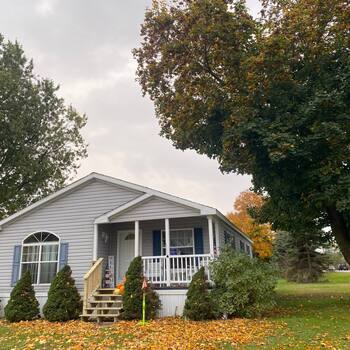The Role of Mobile Home Parks in Disaster Relief Housing
Article Featured
When natural disasters strike—whether it's hurricanes, floods, wildfires, or tornadoes—communities are often left scrambling to find safe, affordable, and immediate shelter. As the demand for emergency housing solutions grows, mobile home parks are stepping up as a reliable option for disaster relief.
In recent years, mobile home parks have played a crucial role in providing temporary housing for displaced families, helping to restore a sense of stability during times of crisis. This article explores how mobile home parks are contributing to disaster recovery and why they're becoming a cornerstone in relief housing solutions.
Why Mobile Home Parks Work in Disaster Relief
Mobile home parks are uniquely positioned to offer rapid, scalable housing in emergency situations. Here’s why:
1. Speed of Deployment
Manufactured homes can be quickly transported and installed, making them ideal for regions that need fast, temporary housing. Many mobile home parks already have infrastructure like water, power, and sewage connections in place, which speeds up setup even further.
2. Affordability
In the wake of a disaster, affordability is key. Mobile homes provide one of the most cost-effective ways to house families—especially when compared to hotels, temporary rental properties, or constructing new homes.
3. Community-Oriented Living
Mobile home parks often foster strong community ties. In post-disaster scenarios, this environment can offer emotional support and a sense of normalcy for those affected.
4. Government and NGO Partnerships
FEMA and other agencies often partner with mobile home park operators to provide housing during disaster recovery efforts. These partnerships ensure that resources are efficiently allocated and families are rehoused quickly.
Case Study: Mobile Home Parks in Action
After major natural disasters like Hurricane Katrina, wildfires in California, and recent flooding in the Midwest, mobile home parks played a central role in housing thousands of displaced families. Operators worked with local authorities to open up vacant lots or repurpose existing parks to meet the urgent need for shelter.
Many of these communities not only served as short-term housing but transitioned into long-term residences, offering stability and security for residents rebuilding their lives.
Opportunities for Investors and Park Owners
The growing need for flexible housing has sparked interest in mobile home park investing as both a socially responsible and financially sound opportunity. Investors who focus on ethical ownership and emergency readiness can help communities while building sustainable business models.
For those interested, the Mobile Home Parks for Sale section on MobileHomeParkStore is an excellent starting point. It lists available parks across the U.S. that could potentially serve both investment and community service roles.
Investors can also engage with the Mobile Home Park Investing Forum to share insights, ask questions, and stay informed about market trends and disaster relief strategies.
Additionally, Early Access for Mobile Home Park offers a chance to get ahead of new listings before they go public, a valuable tool for serious investors looking to make a difference.
Looking Forward: Preparedness is Key
As natural disasters become more frequent and intense due to climate change, it's essential that communities plan ahead. Mobile home parks provide a vital piece of the disaster preparedness puzzle. Park owners, city planners, and emergency management teams should collaborate to:
- Identify suitable mobile home parks for rapid deployment
- Develop agreements with manufacturers and transport providers
- Create communication plans for displaced residents
- Ensure that emergency-ready parks are included in regional disaster response plans
Mobile Homes: A Versatile Housing Solution
Beyond disaster relief, mobile homes continue to serve millions of Americans as a long-term housing solution. With over 30,000+ new and used mobile homes for rent or sale, the market remains diverse, affordable, and resilient.
Final Thoughts
The role of mobile home parks in disaster relief housing is only growing. As the U.S. continues to face the challenges of extreme weather events, mobile home communities stand out as a smart, flexible, and compassionate response. Whether you're an investor, homeowner, or policy maker, supporting this form of housing can lead to stronger, more prepared communities.
If you're exploring ways to get involved or invest in this space, now is the time to act. The future of housing—especially in disaster scenarios—may very well lie in the hands of mobile home parks.
Related Content
Calculating Repair and Maintenance on a Manufactured Home Community By Dave ReynoldsForget Ike & Katrina: The Perfect Storm is Building in Mobile Home Parks



















